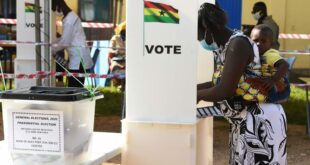In light of the potential that private creditors may suffer significant losses as a result of the government’s anticipated debt restructuring, Ghana has been further downgraded by Moody’s Investors Service into junk status.
According to a statement released on Tuesday, the nation’s credit rating was downgraded by two notches to Ca, the second-lowest rating at Moody’s.
Ghana is now on level with defaulting Sri Lanka as a result.
The rating follows government budget proposals for Ghana for 2023 that call for both domestic and foreign debt restructuring.
“The Ca rating reflects Moody’s expectation that private creditors will likely incur substantial losses in the restructuring of both local and foreign currencies debts planned by the government as part of its 2023 budget proposed to Parliament on 24 November 2022. Given Ghana’s high government debt burden and the debt structure, it is likely there will be substantial losses on both categories of debt in order for the government to meaningfully improve debt sustainability,” In the release, analysts Marie Diron and Lucie Villa wrote.
As a result of the restructuring likely taking place in consultation with creditors and as part of a program with the International Monetary Fund, Moody’s upgraded Ghana’s outlook from negative to stable at the same time.
“The stable outlook balances Moody’s assumption that the debt restructuring will happen in coordination with creditors and under the umbrella of a funding program with the IMF against the potential for a less orderly form of default that could result in higher losses for private-sector creditors.”
Last month, the West African nation established a committee to begin negotiations with domestic bondholders about restructuring its local currency debt.
According to statistics produced from a Bloomberg index, Ghana’s Eurobonds have been among the worst performers in developing markets since Bloomberg published the plans for the local debt recast in September, giving investors losses of roughly 12% during that time.
According to Abena Osei Asare, a deputy minister of finance, the country’s debt-exchange scheme would replace current conditions and swap loans with longer maturities at lower rates.
The initiatives follow a debt sustainability review that revealed a significant danger of financial disaster for the country.
The country was given a Fitch Ratings rating of CC, two notches above default.
Additionally, S&P Global Ratings rated it CCC+, which is seven categories below trash.
Since 2022’s first rating drop, Ghana has seen a string of them.
Source: Ghanatodayonline.com
 Ghanatodayonline.com News, Politics, Health, Education & More
Ghanatodayonline.com News, Politics, Health, Education & More



